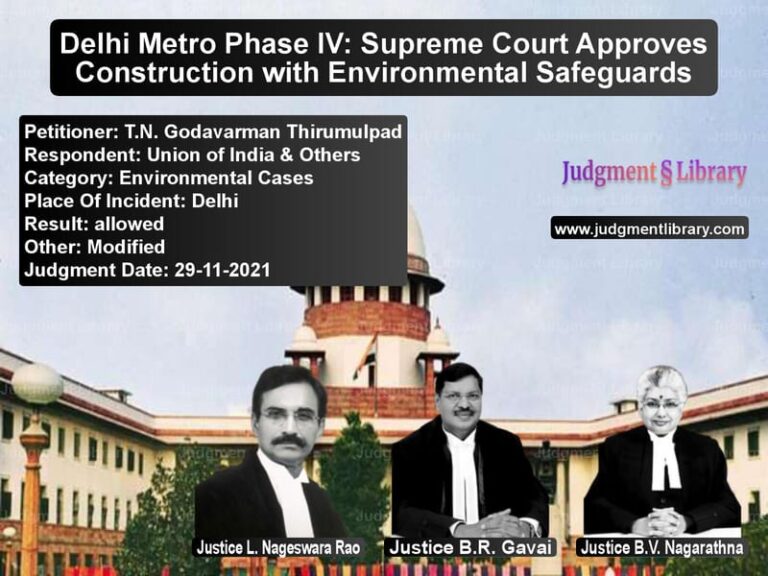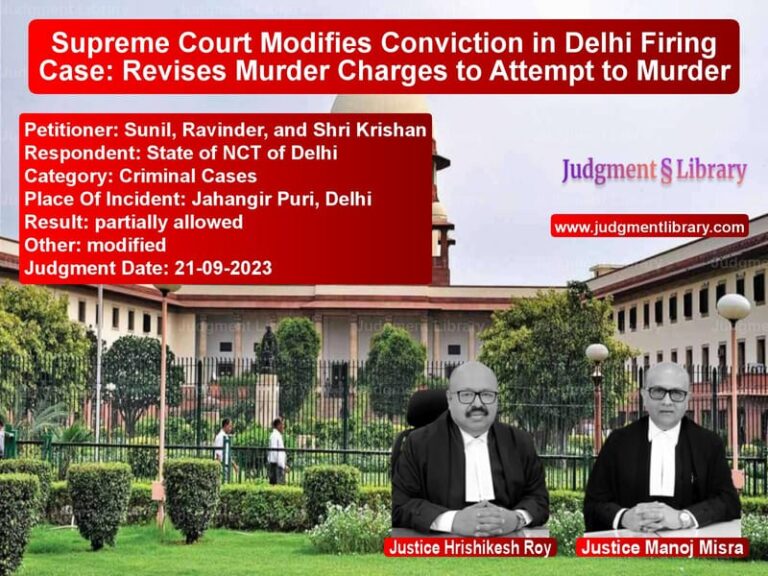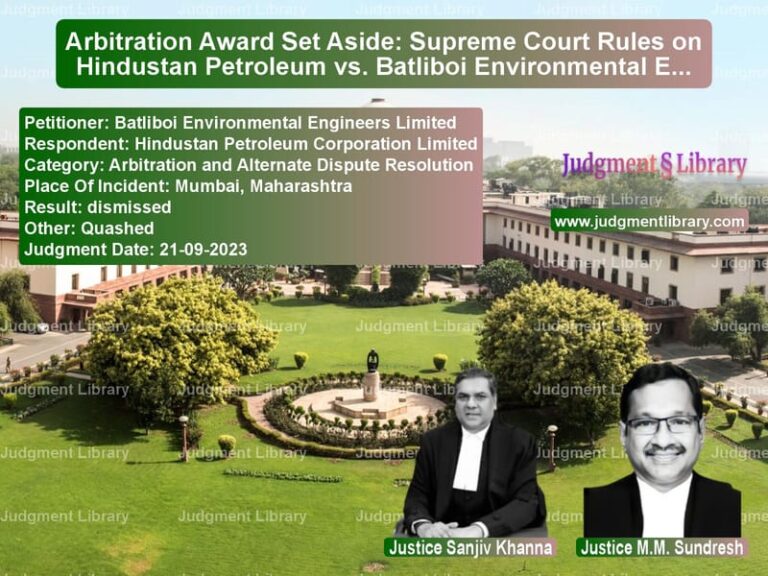Land Allotment Dispute: Supreme Court Rules on Excess Land Payment
The case of Nagpur Housing and Area Development Board vs. Harivitthal Timaji Ghuguskar deals with the dispute over excess land possession and the rate at which the respondents should pay for the additional land allotted to them by the appellant board. The Supreme Court was called upon to determine a fair and equitable solution, balancing the interests of the Housing Board and the occupants.
Background of the Case
The Nagpur Housing and Area Development Board (the appellant) had allotted land to several individuals, including the respondent, Harivitthal Timaji Ghuguskar. However, a dispute arose regarding the extent of land possessed by the respondent, which was allegedly in excess of what was originally granted. The appellant claimed that the respondent must pay for the excess land at a specific rate, while the respondent contested the valuation.
The case was initially taken up by the National Consumer Disputes Redressal Commission (NCDRC), which ruled in favor of the respondent. The appellant, dissatisfied with the order, filed an appeal before the Supreme Court.
Legal Issues
The Supreme Court examined the following legal issues:
- Whether the respondents were in possession of excess land beyond their original allotment.
- What rate should be applied for the payment of such excess land?
- Whether the decision of the NCDRC was just and reasonable.
Arguments by the Petitioner (Nagpur Housing and Area Development Board)
The counsel for the appellant, led by Senior Advocate Gaurab Banerji, argued:
- The respondents were in possession of additional land beyond what was legally granted to them.
- The excess land should be valued at the current market rate, and the respondents should be required to pay accordingly.
- The decision of the NCDRC was erroneous and ignored the financial implications for the Housing Board.
Arguments by the Respondent (Harivitthal Timaji Ghuguskar)
The respondent’s counsel countered with the following points:
- The respondents had been in possession of the land for several years, and demanding current market rates would be unfair.
- The valuation should be based on a reasonable and historically accepted rate rather than inflated contemporary prices.
- The respondents had already invested in the development of the land and should not be penalized for possession issues that were not of their making.
Supreme Court Judgment
The Supreme Court ruled that a fair and reasonable rate should be applied to the excess land, considering both the rights of the occupants and the financial interests of the Housing Board. The key observations made by the Court were:
- The excess land should be valued at the 1998-1999 reckoning rate fixed by the State Government.
- The respondents would be required to pay simple interest at 6% per annum from the date of allotment.
- This approach balances the financial interests of the Housing Board while ensuring that the respondents are not unfairly burdened with inflated costs.
Observations of the Supreme Court
The Court noted the following:
“Having regard to the entire background of the case, the interests of justice will be served if the respondents are directed to pay the land value at the reckoning rate of 1998-1999 fixed by the State Government, along with simple interest at the rate of 6% from the date of allotment.”
The Court emphasized that this approach ensures equity and prevents undue enrichment while considering the practical realities of land allocation.
Conclusion
The Supreme Court’s ruling in this case provides clarity on land allotment disputes, particularly in cases where excess land is occupied by individuals beyond their original allocation. The judgment upholds fairness by setting a reasonable valuation standard, ensuring that occupants are not unduly burdened while safeguarding the interests of public authorities responsible for land management.
By anchoring the valuation at historical government rates rather than contemporary market prices, the ruling sets a precedent for resolving similar disputes with equitable considerations. This decision is particularly relevant in the context of urban land disputes and housing development policies, ensuring that landowners and allottees are treated fairly under the law.
Don’t miss out on the full details! Download the complete judgment in PDF format below and gain valuable insights instantly!
Download Judgment: Nagpur Housing and A vs Harivitthal Timaji G Supreme Court of India Judgment Dated 21-08-2017.pdf
Direct Downlaod Judgment: Direct downlaod this Judgment
See all petitions in Property Disputes
See all petitions in Landlord-Tenant Disputes
See all petitions in Specific Performance
See all petitions in Judgment by Kurian Joseph
See all petitions in Judgment by Mohan M. Shantanagoudar
See all petitions in partially allowed
See all petitions in Modified
See all petitions in supreme court of India judgments August 2017
See all petitions in 2017 judgments
See all posts in Civil Cases Category
See all allowed petitions in Civil Cases Category
See all Dismissed petitions in Civil Cases Category
See all partially allowed petitions in Civil Cases Category







